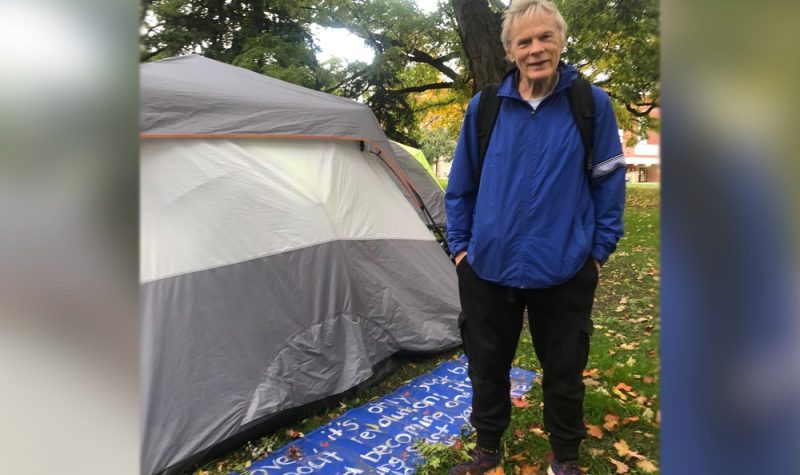By Katia Galati and Talha Hashmani
Clashes between Toronto police and protesters at several homeless encampments across numerous city parks last summer highlighted Toronto's ongoing homelessness and housing crisis. At the heart of the conflict was the forceful removal of outdoor encampments—a policy enacted by the City of Toronto on June 22 last year.
In an emailed statement on Oct. 25, 2021, the City of Toronto wrote that the removal of encampments came from the need to protect the health and safety of residents. The email also stated that prior to the enforcement of an eviction notice, “every person residing at an encampment is offered access to a safe inside space."
But faced with a shortage in beds and space, shelters across the city don’t seem to have the capacity to permanently accommodate an increase in the city’s unhoused population. According to Fact Check Toronto, close to 8,000 people sought shelter through the city a day before Toronto went into lockdown. The City of Toronto wrote in its statement that its shelter system can house approximately 6,800 individuals.
It's a situation all too familiar to Mike Burnett who is faced with a growing number of youth seeking shelter. Burnett, a community outreach and education specialist at Youth Without Shelter, said there just isn’t enough space to support everyone.
“The reality is, we’re at about 97 per cent occupancy on an annual basis,” said Burnett “ [This] essentially means that when I have a bed open, it gets filled pretty quickly. Most days we don’t have beds available.”
As a response to this issue, the city converted various hotels into a temporary shelter system in 2020 to manage the influx of unhoused individuals brought in by the housing crisis and the removal of outdoor encampments. Hotel shelters were opened as they became available.
Sites like 45 The Esplanade and Bond Place Hotel bear the brunt of this crisis as they navigate the need for positive relations with neighbouring communities. In the months since these sites were enacted, community residents have complained about the increase in drug use, vandalism and other criminal activities as more individuals seek support from these shelters.
Despite the city’s best efforts, encampments continue to exist. Lynn and Phil, who are amongst the remaining residents at an encampment in Allan Gardens Park, say they prefer the community the encampments bring, as opposed to the shelter system.
While speaking about her experiences in Toronto’s shelter system, Lynn said that she was not treated well.
“They're taught to be cold... treat you cold-hearted. To live in a place like that… it's not easy.”
This is part one of The Unhoused and The Unprepared, a six-part series where we dive into Toronto’s homelessness and housing crisis. Listen to the rest of the interviews and the first episode of The Unhoused and The Unprepared series: No Vacancy.


